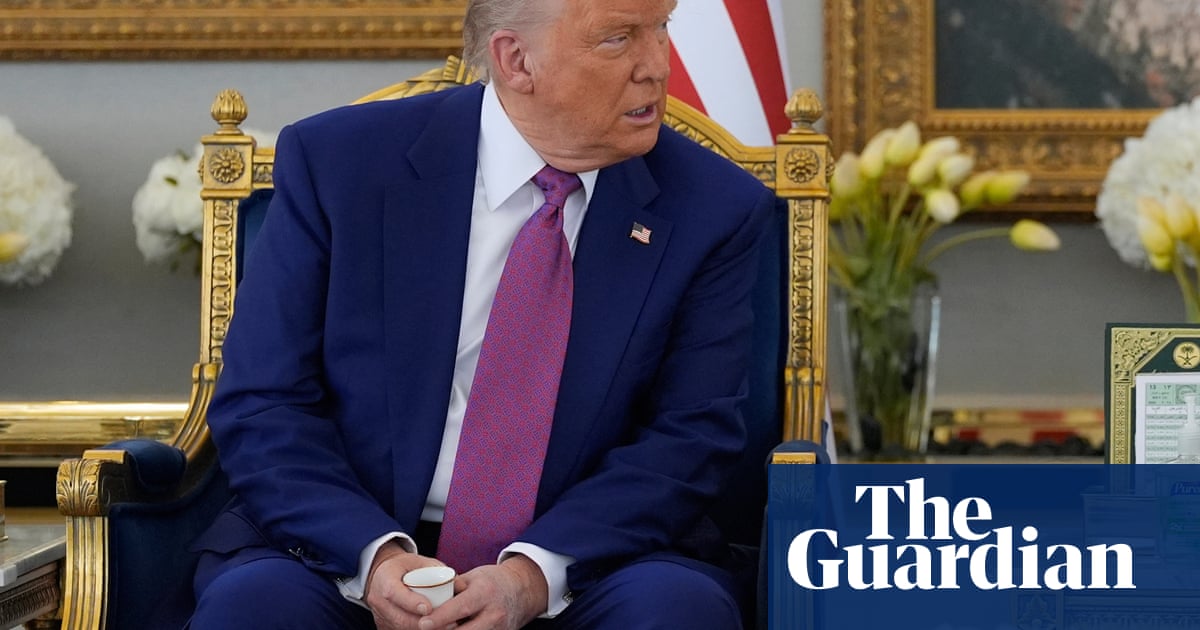Lawyers for the Trump administration were unable on Friday to tell a federal court exactly where the Maryland resident who was wrongly deported to El Salvador last month is or how he is, as the judge admonished the government at a heated hearing.
The US district judge Paula Xinis said it was “extremely troubling” that the Trump administration failed to comply with a court order to provide details on the whereabouts and status of the Salvadorian citizen Kilmar Abrego García and she wanted daily updates on what the government is doing to bring him home.
“Where is he and under whose authority?” Xinis asked in a Maryland courtroom.
“I’m not asking for state secrets,” she said. “All I know is that he’s not here. The government was prohibited from sending him to El Salvador, and now I’m asking a very simple question: where is he?”
The government side responded that it had no evidence that he is not still in El Salvador. “That is extremely troubling,” Xinis said.
The US supreme court on Thursday upheld the judge’s order to facilitate Abrego García’s return to the US, after a lawsuit filed by the man and his family challenging the legality of his summary deportation on 15 March.
Abrego García has had a US work permit since 2019 but was stopped and detained by Immigration and Customs Enforcement (Ice) officers on 12 March and questioned about alleged gang affiliation. He was deported on one of three high-profile deportation flights to El Salvador made up chiefly of Venezuelans whom the government accuses of being gang members and assumed special powers to expel without a hearing.
Xinis on Friday repeatedly pressed a government attorney for answers but the administration defied her order for details on how or when it would retrieve Abrego García and claimed she had not given them enough time to prepare.
“I’m not sure what to take from the fact that the supreme court has spoken quite clearly and yet I can’t get an answer today about what you’ve done, if anything, in the past,” Xinis said.
Drew Ensign, an attorney with the Department of Justice, repeated what the administration had said in court filings, that it would provide the requested information by the end of Tuesday, once it evaluated the supreme court ruling.
“Have they done anything?” Xinis asked. Ensign said he did not have personal knowledge of what had been done, to which the judge responded: “So that means they’ve done nothing.”
The administration said in a court filing earlier on Friday that it was “unreasonable and impracticable” to say what its next steps are before they are properly agreed upon and vetted.
“Foreign affairs cannot operate on judicial timelines, in part because it involves sensitive country-specific considerations wholly inappropriate for judicial review,” the filing said.
Abrego García’s lawyers said in a Friday court filing: “The government continues to delay, obfuscate, and flout court orders, while a man’s life and safety is at risk.”
The case highlights the administration’s tensions with federal courts. Several have blocked Trump policies, and judges have expressed frustration with administration efforts – or lack of them – to comply with court orders.
Abrego García’s wife, US citizen Jennifer Vásquez Sura, has not been able to speak to him since he was flown to his native El Salvador last month and imprisoned. She has been rallying outside court and has urged their supporters to keep fighting for him “and all the Kilmars out there whose stories are still waiting to be heard”.
The family sued to challenge the legality of his deportation and on 4 April Xinis ordered the administration to “facilitate and effectuate” his return. The administration challenged that order at the supreme court, which upheld Xinis’s order but said the term “effectuate” was unclear and might exceed the court’s authority.
The justice department in a supreme court filing on 7 April stated that while Abrego García was deported to El Salvador through “administrative error”, his actual removal from the United States “was not error”. The error, department lawyers wrote, was in removing him specifically to El Salvador despite the deportation protection order.
Asked at the White House media briefing on Friday if Donald Trump wants the president of El Salvador, Nayib Bukele, to bring Abrego García with him when he visits the US on Monday, the press secretary, Karoline Leavitt, said the supreme court’s ruling “made it very clear that it’s the administration’s responsibility to ‘facilitate’ the return, not to ‘effectuate’ the return”.
Reuters and the Associated Press contributed reporting

 German (DE)
German (DE)  English (US)
English (US)  Spanish (ES)
Spanish (ES)  French (FR)
French (FR)  Hindi (IN)
Hindi (IN)  Italian (IT)
Italian (IT)  Russian (RU)
Russian (RU)  1 month ago
1 month ago
























Comments